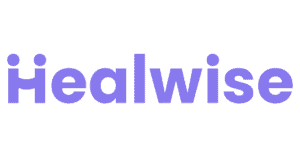This post is part of a series offering tips for finding culturally sensitive care for your identity or background. In the mental health field, we know that having the right therapist is essential for therapy to be helpful.
So how do you find the right therapist? One thing to look for is a therapist who you feel comfortable talking to–someone who “gets” you. This probably means they understand the things that are unique about you and your life experiences.
Most importantly, the right therapist tailors their therapy to better fit your identity, culture, and values. This is called culturally sensitive care.
*****
See below for general guidance on finding culturally sensitive care and specific information and resources for finding the right therapist if you’re Black or African American.
We’ll update this post as we get more information and find new resources, so bookmark this page!
Some stats
Sometimes finding a therapist with your same background is hard just because there aren’t enough of them. Check out these stats:
- US Population that is Black or African American: 13%
- Licensed psychologists who are Black or African American: 3%
- Master’s level social workers who are Black or African American: 19%
Remember: even when a therapist has the same background as you, it’s not a guarantee that you’ll like working with them. Know your rights as a therapy client! Try out different therapists to see who you click with best and whose style you like.
Interview your therapist
One way to tell whether a therapist is culturally sensitive is to ask them a few questions before starting therapy. Think of this as a therapist “interview.” It’s normal to have some anxiety or worry about asking these questions.
You can ask these questions over the phone, by email, or in person.
We recommend trying to interview a potential therapist over the phone so you can hear their voice. If they charge for the first visit, this could also save you money if it turns out they weren’t a good match.
Some sample questions you could ask your therapist:
- “How would you describe your experience treating clients who share my Black identity?”
- “Describe your knowledge of safety risks related to my identity as a Black person?”
- “What is your practice’s position on the mental health impact of navigating oppression, racism, and racial violence?”
- “What is your practice’s position on the mental health impact of navigating multiple systems of oppression?”
(Thanks to our friends at Human Rights Campaign and Mental Health America for developing these questions!)
Can I get therapy in another language?
If you’re looking for therapy in a language other than English, things get a little trickier. You’ll have to make sure that you find a therapist that you can communicate with. Most therapists in the US only speak English.
Some mental health clinics and therapists use a professional interpreter when they don’t speak their client’s language. The interpreter will likely be over the phone, translating what you and your therapist say to each other. It’s up to you if you are comfortable with having an interpreter in the room with you and your therapist.
Where to find the right therapist
Here’s a list of places where you can find a therapist who is Black or African American, or at least respects and values that part of your identity.
- African American Therapists
- African-American Mental Health Providers
- The Association of Black Psychologists
- Ayana Therapy
- Black Emotional and Mental Health
- Black Female Therapists
- Black Girls Smile
- Black Men Heal
- Black Mental Health Alliance
- Black Therapists Rock
- The Boris Lawrence Henderson Foundation
- Clinicians of Color
- Immigrants Rising (California)
- Inclusive Therapists
- InnoPsych
- LGBTQ Psychotherapists of Color (QTOC) (Northern California)
- The Loveland Foundation Therapy Fund
- Melanin & Mental Health
- MyTruCircle
- National Queer & Trans Therapists of Color Network
- Open Path Collective
- Psychology Today–Find an African-American Therapist
- Sista Afya (Chicago)
- Therapy for Black Girls
- Therapy for Black Men
- Therapy for Queer People of Color
- Whole Brother Mission
You can also search our directory for affordable mental health services that specifically serve Black or African American people.








